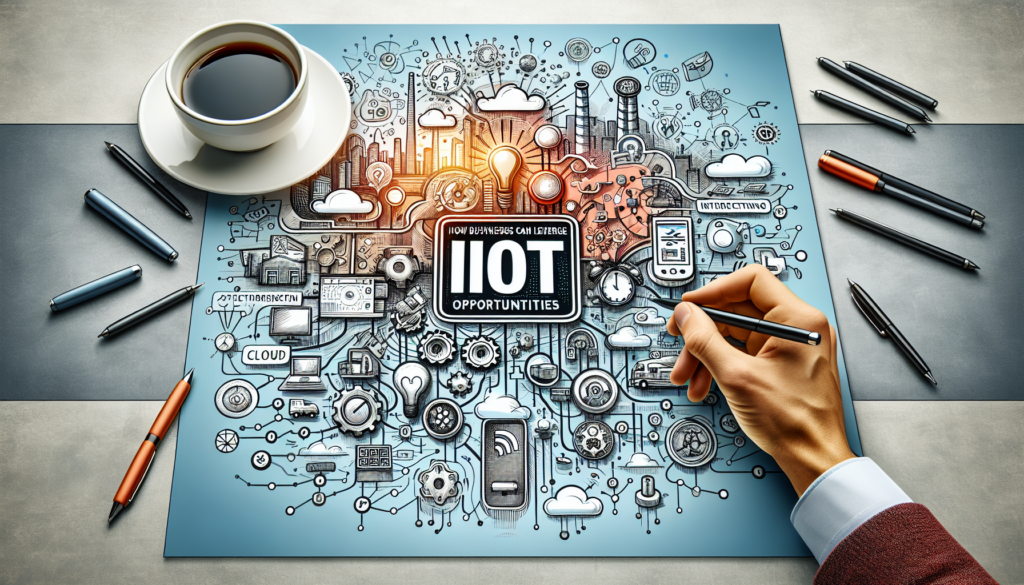The adoption of the Internet of Things (IoT) has opened up a new horizon of opportunities for businesses across various industries, enabling advanced automation, real-time data analysis, and unprecedented operational efficiency. IoT applications, immersed in contexts of technological disruption, range from intelligent resource management to enriching the customer experience. Through a methodical deepening without speculation, this article will address the mechanisms by which organizations can capture the value that IoT promises, as well as the current technical challenges and future outlooks.
Practical Applications of IoT in the Business Environment
Resource Management and Operations
Companies are implementing IoT solutions in the management of physical assets. This involves the use of sensors and smart devices to track the real-time location, status, and performance of machinery and equipment. The generated data enables decision-making based on up-to-date information, optimizing maintenance, and preventing failures.
Energy Efficiency and Sustainability
Monitoring energy consumption through connected devices has resulted in more efficient use of resources and a significant reduction in costs and carbon emissions. Smart lighting and climate control systems are examples that use environmental data and usage patterns to adapt their operation automatically.
Supply Chain and Logistics
IoT has transformed the supply chain, providing real-time visibility into the movement of products. RFID sensors and GPS allow companies to monitor the location of shipments, product quality in transit, and optimize routes to reduce delivery times.
Customer Interaction and Product Personalization
Companies use IoT devices to collect data on customer behavior and preferences. This information enables the personalization of products and services, offering an improved user experience, reflecting in increased customer loyalty and competitive advantages.
Technical Advances and Current Challenges
Artificial Intelligence and Advanced Data Analysis
The incorporation of Artificial Intelligence (AI) into IoT systems allows for the analysis of large sets of data produced by connected devices. Using machine learning techniques, companies can identify patterns, predict trends and behaviors, and automate complex decisions. The quality of these analyses depends on the quality of the collected data, which poses a challenge in standardization and interoperability among different devices and platforms.
Data Security and Privacy
As connectivity increases, so do the vulnerabilities to cyber-attacks. Defense strategies involve designing robust systems, encrypting data, secure authentication, and establishing protocols for managing security breaches.
Legacy System Integration
Modernizing old systems to integrate IoT technologies is often complex and costly. The coexistence of next-generation technology with outdated infrastructures requires a meticulous approach to avoid incompatibilities and maximize efficiency.
Looking Forward: Innovations on the IoT Horizon
5G Networks and Edge Computing
The proliferation of 5G networks promises to increase the speed and capacity of IoT network infrastructure, improving data collection and processing. Edge computing decentralized data processing, mitigating latency delays, and enabling more agile and local decisions.
Autonomous IoT
The development of “autonomous IoT”, where devices not only collect data but also make decisions and act on them without human intervention, is a potentially disruptive direction. This requires advancements in device reliability and cognitive capacity, which remains the subject of extensive research and development.
Blockchain and IoT
Blockchain offers an additional layer for security and traceability in IoT. By ensuring the authenticity and immutability of the collected data, it is possible to create transparent and trustworthy supply chains, and ensure users’ data privacy.
Relevant Case Studies
Smart Manufacturing: Companies like Siemens have implemented IoT platforms to create what is called smart factories. These use cyber-physical systems that monitor production processes and can predict maintenance before equipment failures occur, significantly reducing downtime.
Smart Cities: Barcelona has been a leader in the use of IoT for city management, implementing smart parking systems, lighting, and waste management. This has not only improved the quality of life for citizens but also promoted a more sustainable urban environment.
In conclusion, while the IoT landscape is constantly evolving and its potential is expanding day by day, companies that manage to integrate and take advantage of these technologies will be better positioned to lead in the global economy. Successful IoT implementation demands a multidisciplinary approach that mixes technical knowledge with business strategies and ethical considerations, a challenge that, if overcome, can redefine the competitive landscape in the 21st century.

